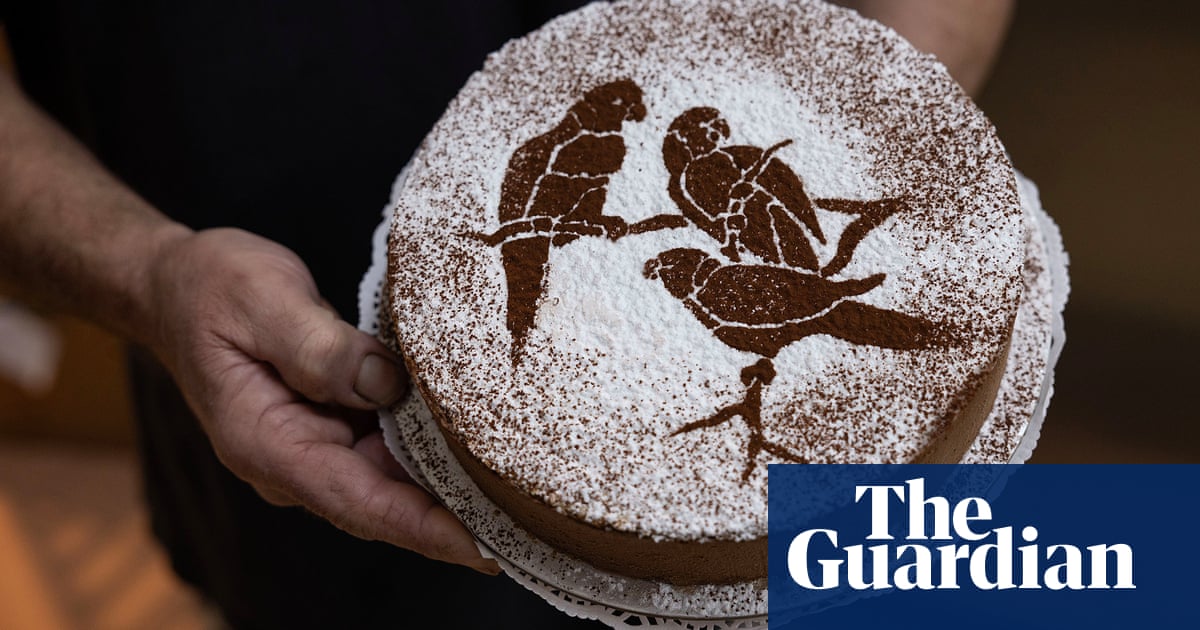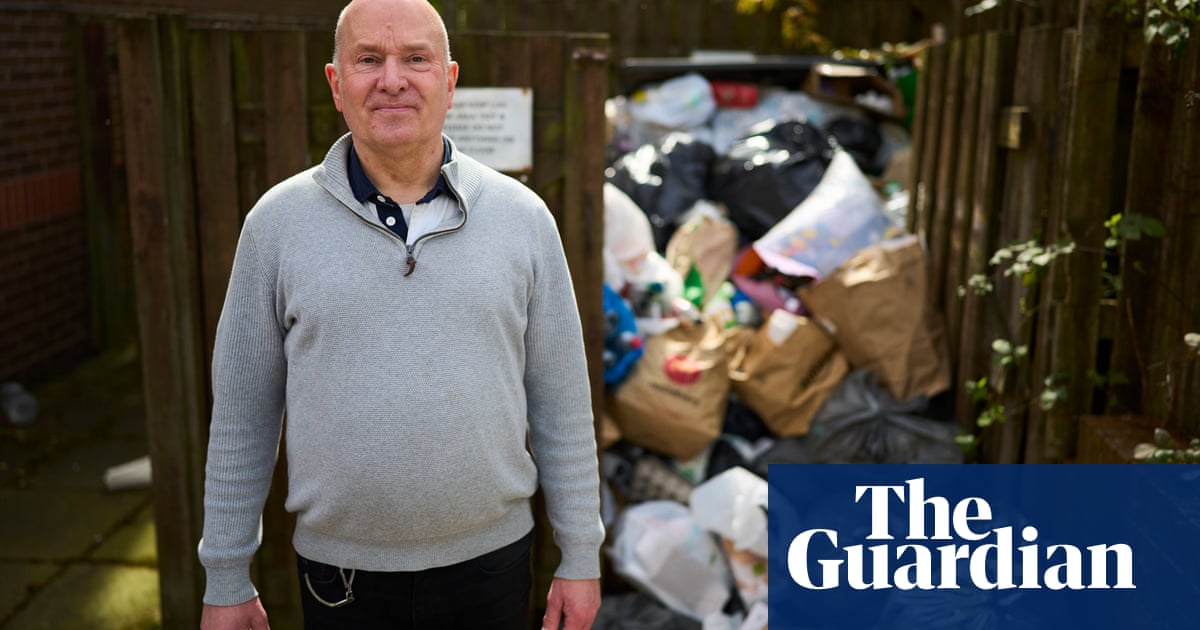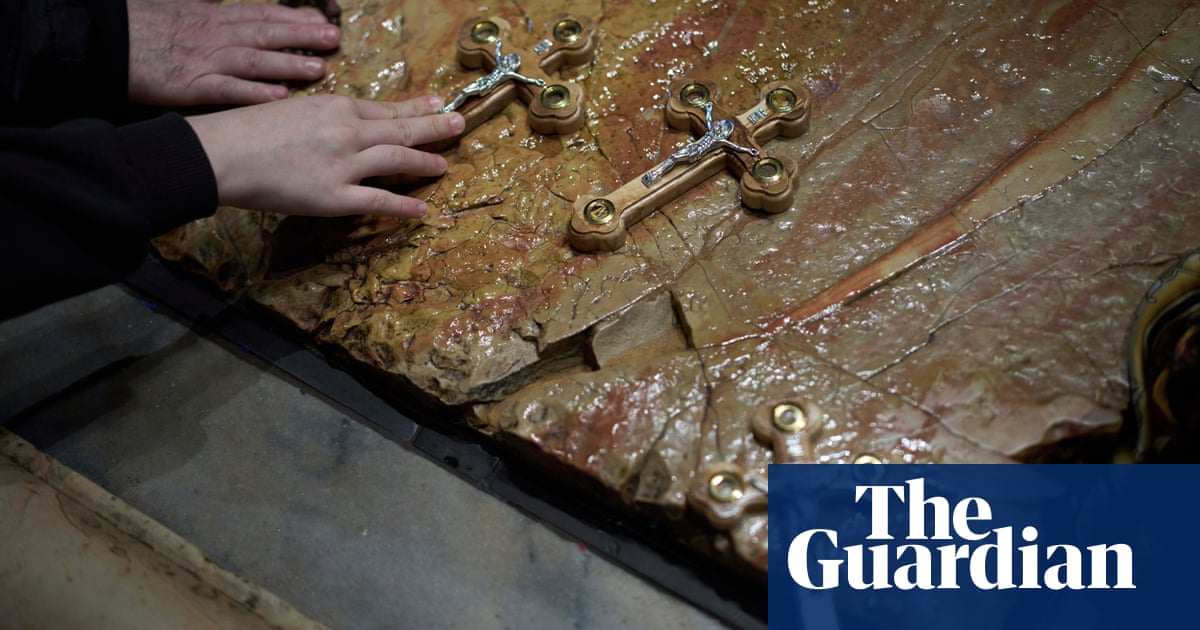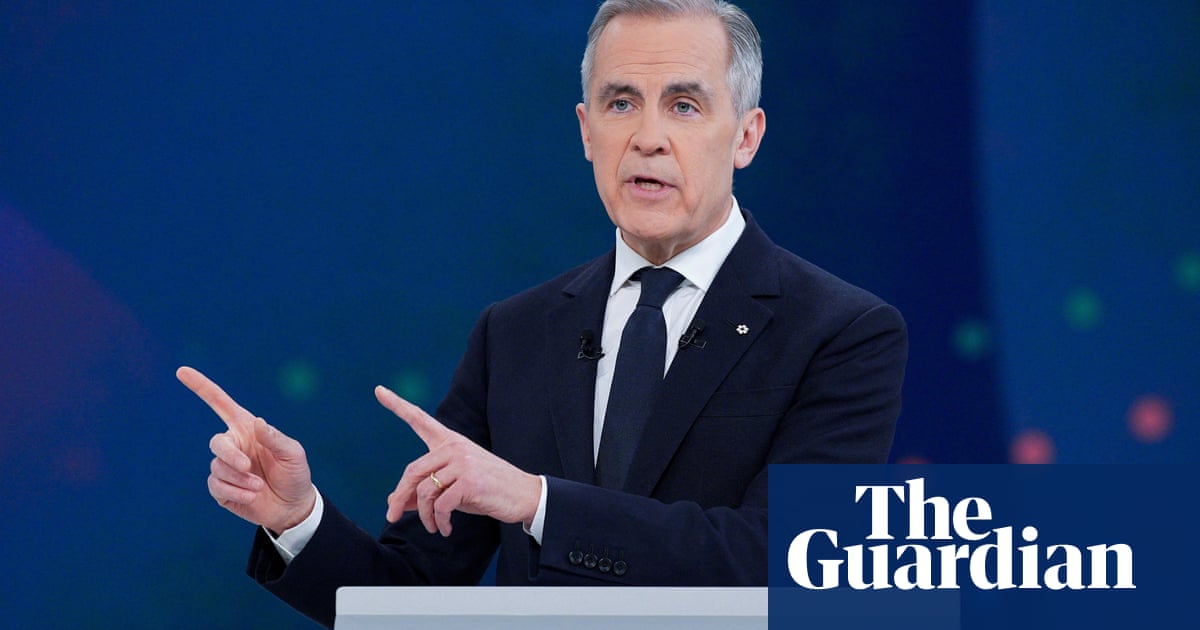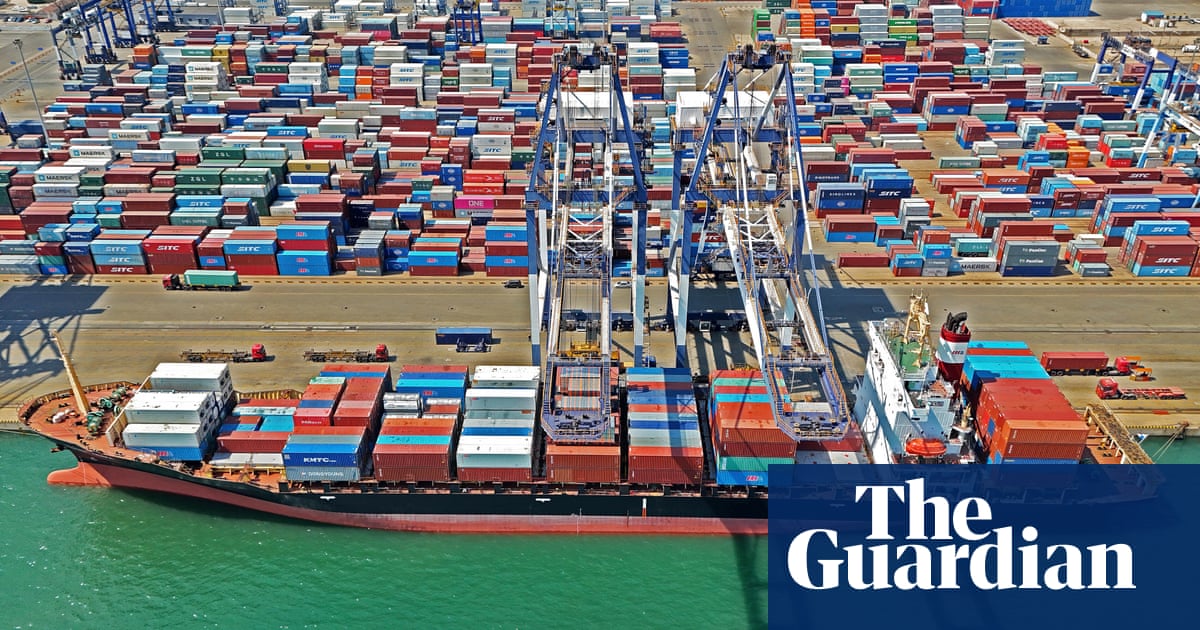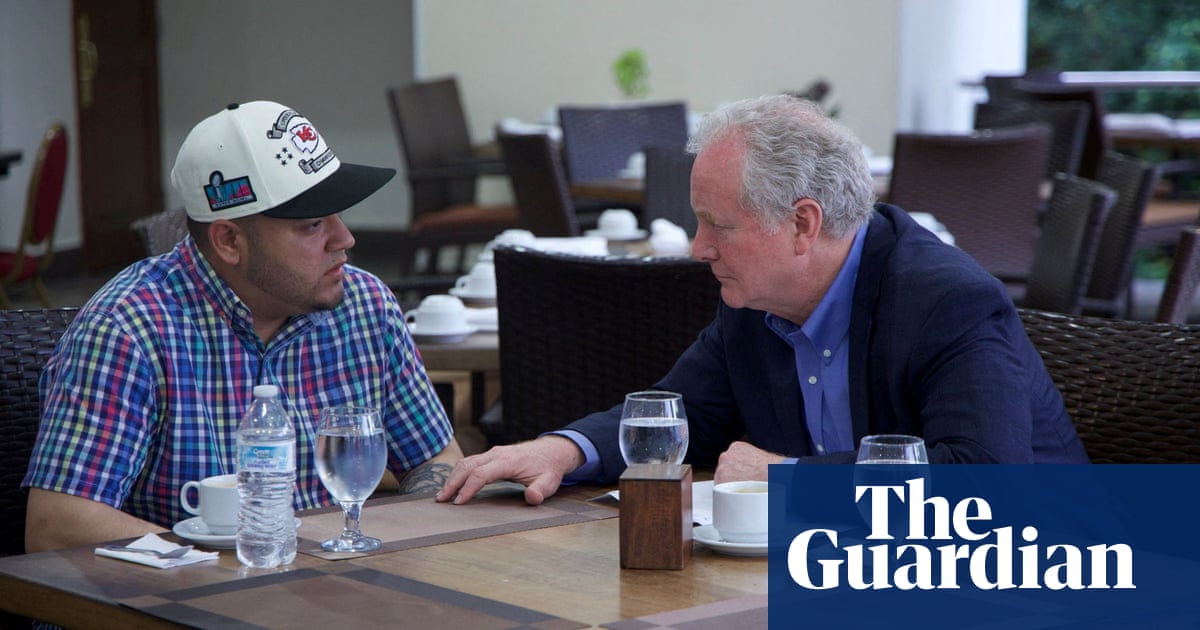Beth Benike knew the tariffs were coming.
The Minnesota veteran invented a placemat with bungee cords that hold toys or utensils, keeping them off the floor when babies toss them. It’s one of several products she created for Busy Baby, a company she runs with her brother. They are manufactured in China.
She expected and budgeted for about 20-30% tariffs this year. When the first round of tariffs came in at 10%, it was manageable. Then the rate on China crept up, then up again, to 54%. That was her “oh, shit moment”, but she thought she could weather it, she told the Guardian.
It didn’t stop there, though. It climbed up to 104%. She filmed a video of herself “mid-meltdown” over the extreme tariff, posting it on her social media.
Busy Baby is one of many US small businesses having to reckon with monumental tariffs that could shutter their livelihoods. Donald Trump’s escalating trade war with China now includes a 125% tariff on Chinese products coming into the US. These businesses were given little more than a week to confront a budget-busting tax on their goods.

“After today’s announcement, and the impending 104% tariff, I am abandoning my products in China. I am leaving them there because I simply cannot afford to ship them here,” Benike told her followers on Monday, before Trump hiked the tariff on Chinese goods up even further on Wednesday.
“At some point, hopefully in the near future, China will realize that the days of ripping off the U.S.A., and other Countries, is no longer sustainable or acceptable,” Trump wrote on Truth Social Wednesday as he paused tariffs on other countries.
Benike already paid about $160,000 to manufacture her products in China, and would have to pay more than that to bring them to the US. So for now, she’s trying to figure out other options: she could try to sell them overseas, or send them to another country to repackage them.
“I’m terrified for my business, and I’m terrified for all the other small businesses in the United States right now, because we don’t know what to do, and we’re invested in our businesses. I could lose my home, and I don’t understand it, and I don’t know what to do,” she said in the video.
After Trump’s latest increase, Benike said she’s looking into sending the paid-for products to Australia, where she has friends, to have them repackaged, then importing them from there during the 90-day pause because it is at least a way to get the products she already paid for to the US.
Her business has grown since she founded it in 2017, and accolades have come with it. She was named Minnesota’s small businessperson of the year by the US Small Business Administration this year. She finally got into big retailers – Target and Walmart – with small test runs. Those contracts, though, were signed before the tariffs. Walmart told her it wanted to keep and expand its offerings from Busy Baby, she said, but she had a “hard conversation” with the buyer this week to let them know she cannot add a third product to their roster because of the high tariffs.

“It has completely stifled my growth in big box retail, which has been our main goal for three years -- to grow into that space,” she said. “Because as a teeny, tiny business, that’s a huge achievement, huge for our brand. And now it’s halted.”
The other option, the one Trump wants, is a pipe dream: manufacturing her products in the US. Benike would prefer to manufacture here, too. But a mountain of logistics, near impossibilities, stand in her way.
Food-grade silicone, which she uses for her products, is not available domestically. When she looked into the cost of importing the material when she first started, it was more expensive than importing a finished product, and the prices have gone up since then. Manufacturing facilities in the US with the compression mold machines she needed require much larger runs than she can commit to. The minimum requirements for factories here was 20,000 – in China, she could do a couple thousand at a time.
Making the molds for her products takes about two months. They also are made in China – many American manufacturers send American steel to China to makemolds because they’re better at it there, she said. The molds alone would cost up to $75,000 in the US. If she found a factory and the capital needed to get it all going, it would still take a minimum of four months until she had products ready to sell, she estimated.
“It’s financially impossible for me to manufacture here. But even if I had an angel that just dropped a million dollars in my lap, it doesn’t make sense as a business model for how much we would have to charge for the product and charge the consumer,” she said. “It doesn’t make any sense. So I wish I understood the big picture, or how they expect us to pivot in this tiny window of time. I don’t understand, I just don’t understand this.”
She said she has about two or three months’ worth of product on hand now, giving her a few months until she could theoretically go out of business if she doesn’t figure something else out. If people buy up what she has left, that at least gives her some cashflow to buy her some time to make new plans.
On Tuesday, she got a call from the Small Business Administration, she said. Someone there saw her video, so she’s sending them information on her products and the machines at the factory she uses now. The agency is going to try to find a factory in the US that could make her products, but she’s not holding her breath.

She decided to post her video and speak out about the way the tariffs are affecting small businesses because she has a community of supporters and other entrepreneurs who can help and commiserate, including some who know her from her appearance on Shark Tank.
Two years ago, during a different tough spot for her business, she had suicidal thoughts. The weight of being a CEO was heavy. She thought, if she was gone, at least her family would have life insurance to live on. She got help then and learned coping strategies.
The thought of life insurance surfaced again this week. She caught it quickly, reminding herself that “this is a trick my brain is playing on me right now, because it doesn’t see a way out”. She wants other entrepreneurs to know they aren’t alone as they face these tariffs. She’s heard from some, who have messaged her privately to say they are feeling the same pain, but can’t speak out because it’s a business risk.
Some of the comments on her video and on local news websites that have written about her predicament have not been kind. Some have said, you voted for this, or you deserve this if you voted for Trump. She did not vote for Trump, she said, but she does not know why her political beliefs matter.
“No one deserves this. No one. Regardless of who they voted for,” she said. “Trump said he was going to do tariffs. We knew that. Yes, we knew tariffs were coming. I would have never in a million years guessed it would be like this.”
She has more than 15 patents for the products she’s created for the “accidental business” she came up with after her son was born. She learned how to start a business, develop products, set up an e-commerce store. Now, digging her way out from massive tariffs is one more thing to learn.
“We’ve got a great product, and it is a great product for babies. Babies exist all over our world, all over the planet, babies everywhere. I can’t fail,” she said. “This is my children’s livelihood. It’s my home.”

.png) 1 week ago
10
1 week ago
10




